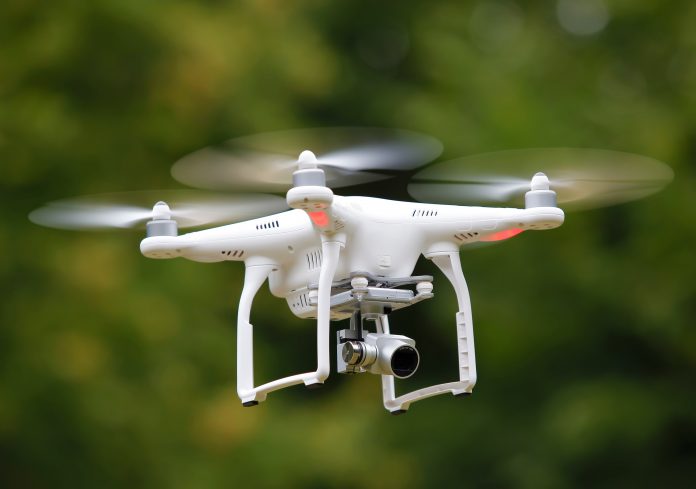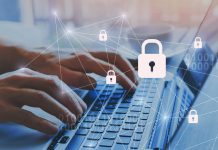Here, the 100% publicly owned YPO tells us what we need to know about the intriguing new Drones and Associated Products and Services framework for the emergency service and the wider public sector
YPO has announced the launch of its new Drones and Associated Products and Services framework for the emergency service and the wider public sector. The first of its kind.
In June 2019, YPO was approached by the Home Office to discuss a gap in public procurement. The emergency services, particularly the police and the fire and rescue service were unable to purchase drones and other services via a compliant route to market. The importance of developing technology and how drones could support emergency and public services was increasing and a solution was needed. YPO worked closely with the Home Office, the police and the fire and rescue services to agree on the structure of the framework that is fit for the emergency services and the wider public sector.
Emergency services, blue light and public sector
The new framework is a tool to support the emergency services, blue light and other public sector bodies in purchasing drones and associated products and services. Customers will be able to purchase drones and their accessories, whilst having access to other services such as the hire of drones and their pilots to inspect buildings or landscaping, drones repairs and maintenance, training services and licencing.
Since opening the framework, YPO has seen the emergency services, as well as other public sector organisations, utilising drones in truly unique ways.
Social distancing laws
Whilst the majority of people are currently observing social distancing effectively, sadly there have been exceptions to this across the UK. The benefits of using drones to limit large gatherings throughout lockdown are self-evident. Under temporary legislative exemptions, police forces can help to ensure the safety of the population and maintain the protection of officers by gaining an aerial view of public spaces.
Understandably, there have been concerns expressed about the responsible use of drones; however, a recent Ipsos-Mori survey indicated that 81% of people strongly support giving police increased powers in the context of COVID-19. The pandemic has fundamentally changed our human behaviour in a short space of time, and during this uncertainty people are seeking assurances that law and order is maintained and that it will continue to be as lockdown measures are gradually reduced. Drones can play an important role, alongside a responsible police presence, in reassuring the public that appropriate actions are being taken.
Fire and rescue
Prior to the spread of coronavirus, fire and rescue services across the UK were using drones to assess damage to buildings and scan dangerous locations. This usage limits the risk to life for firefighters, but also allows for greater visibility in challenging circumstances. Local authorities observed this application and have utilised the YPO framework themselves to acquire drones for property assessments. Identifying points of maintenance with drones can lead to significant savings for local authorities that span large estates. Making budgets go further in this way is key to how YPO works with local authorities, which is why the organisation anticipates more diverse uses of the framework in the near future, such as the use of tethered drones for large scale site security.
Delivering PPE and medical supplies
Recently, we have seen the government announce plans for drones to deliver PPE and medical supplies to the Isle of Wight, with a timeframe touting a possible start date as early as early May. This follows the Civil Aviation Authority (CAA) introducing further legislative exemptions, allowing for drones to be used by UK emergency services beyond visual line of sight (with a competent observer). This opens the possibility for more medical supplies and equipment to be transported using drone technology, minimising human contact and reducing the risk of spreading infection.
Currently, there is a limited demand for this in densely populated urban centres, as traditional means of delivery and current levels of capacity are thankfully coping well. However, in rural communities, the opportunity to transport test samples, essential equipment or medication up to 2Kg across difficult terrain could prove to be incredibly useful. Establishing a network of drones to complete these tasks could also play a valuable role in speeding up the rate of testing. YPO has already prepped for this possibility, with specialist suppliers listed on the drone framework with international experience in transporting medical equipment and supplies.
Aerial deliveries
Similarly to how we have seen local authorities adapt to using drones, it might be possible that under new exemptions we see more aerial delivery of supplies and provisions across social housing networks and care homes. Many UK local authorities are doing an amazing job of collecting foodbank supplies for those in need across their regions, but they might struggle to distribute produce safely whilst maintaining social distancing rules. Drone delivery of medical or food supplies to residents identified as being vulnerable, isolated and in need of help could negate this problem.
YPO is beginning to see first-hand the potential for drone use across the public sector. We continuously work with suppliers and organisations to curate dynamic frameworks, so should demand arise for drones in any specific sector, YPO will be ready to find the right solutions. This reflects YPO’s wider approach to COVID-19 and we invite all suppliers and member authorities to get in touch to let us know how we can help.
Further information regarding the Drones and Associated Products and Services framework can be found on the YPO website at www.ypo.co.uk/dronesframework.











